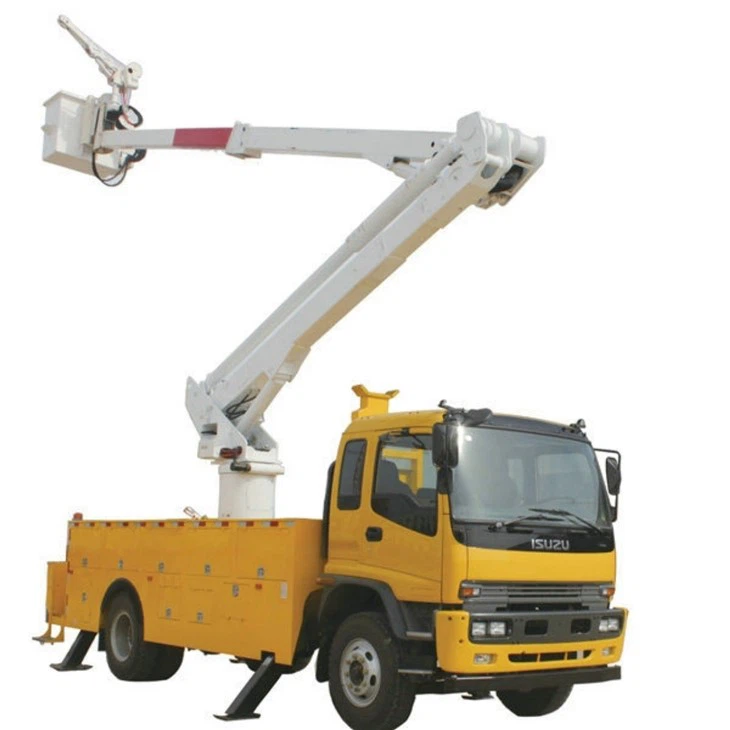Understanding Garbage Truck Realities: The Essential Guide

Introduction to Garbage Trucks
Garbage trucks play a pivotal role in urban waste management. These vehicles are vital for maintaining cleanliness and hygiene in communities. Their design, functionality, and operation are fascinating subjects that stretch beyond the surface-level understanding of their purpose. In this comprehensive guide, we will delve into the various aspects of garbage trucks, including their types, technology, operational efficiency, environmental impact, and more.
The Evolution of Garbage Trucks
The Early Days of Waste Management
The concept of waste collection dates back to ancient civilizations. Early refuse collection involved horse-drawn carts, which were inefficient and labor-intensive. These carts were often simple wooden structures that could not compact waste, leading to overflowing streets.
Modern Innovations in Garbage Truck Design
With the advent of the industrial revolution, garbage trucks underwent significant transformations. Innovations like hydraulic systems for compacting waste and advanced materials for durability became commonplace in the 20th century. Today’s garbage trucks are equipped with features that enhance productivity and safety.
Types of Garbage Trucks
Rear-Loading Garbage Trucks
Rear-loading garbage trucks are among the most common types. They have an opening in the rear, where workers manually load the garbage. These trucks are best suited for residential areas and small commercial sites.

Front-Loading Garbage Trucks

Used primarily for commercial purposes, front-loading garbage trucks feature a large container in the front. They can service large dumpsters and are efficient for high-volume waste disposal.
Side-Loading Garbage Trucks
Side-loading trucks have mechanisms that allow waste to be collected from the side. This design reduces the need for workers to exit the vehicle, improving safety and efficiency. They are becoming increasingly popular in urban settings.
Automated Garbage Trucks
Automated trucks use robotic arms to collect waste. This technology minimizes human labor and enhances safety, reducing the risk of accidents related to manual waste collection. As cities continue to modernize, these trucks are expected to become more prevalent.
Technology in Garbage Trucks
GPS and Route Optimization
Many garbage trucks are now equipped with GPS technology that helps in optimizing waste collection routes. This innovation results in reduced fuel consumption and lowers operational costs.
Sensors for Weight Measurement
Sensors are being installed in garbage trucks to measure the weight of collected waste. This data can help municipalities in forming better waste management strategies and adjusting collection frequency.
Telematics Systems
Telematics allows for real-time tracking of garbage trucks. This technology provides insights into vehicle performance and helps in preventive maintenance planning, ensuring that trucks remain operational and efficient.
Operational Efficiency of Garbage Trucks
Best Practices for Waste Collection
- Schedule regular maintenance to prevent breakdowns.
- Train operators on safe driving practices.
- Implement route planning software to reduce fuel usage and time.
Case Study: A City’s Efficient Waste Management Program
A city in the Midwest implemented a new waste collection program using automated trucks and route optimization software. The city reported a 20% decrease in operational costs and improved service satisfaction among residents within the first year.
The Environmental Impact of Garbage Collection
Reducing Landfill Waste
Garbage trucks play a crucial role in reducing landfill waste through effective collection and transportation of recyclables. The proper management of solid waste ensures that materials are recycled or composted, decreasing the dependence on landfills.
Fuel Choices and Their Impact
Advancements in fuel technology have led to the introduction of compressed natural gas (CNG) and electric garbage trucks. These options provide cleaner alternatives with lower emissions compared to traditional diesel-powered trucks.
Challenges Faced by Garbage Truck Operators
Safety Risks
Garbage truck operators face considerable safety risks, including traffic accidents and hazardous working environments. Implementing comprehensive training programs and utilizing safety equipment is crucial in mitigating these risks.
Community Engagement
Effective waste management requires community participation. Educating residents on proper waste disposal practices and the importance of recycling is essential for enhancing the effectiveness of garbage collection systems.
Future of Garbage Trucks
Emerging Technologies
The future of garbage trucks is closely tied to advancements in technology. Innovations such as artificial intelligence for route planning and the use of drones for monitoring landfill status show promise in revolutionizing waste management.
Sustainability Initiatives
Municipalities worldwide are increasingly prioritizing sustainability in their waste management strategies. This involves investing in greener vehicles and practices that aim to minimize environmental impact.
Community Involvement in the Future
For garbage trucks to be most effective, active community involvement is essential. Future initiatives may focus on increased public awareness campaigns that educate on waste recycling and the benefits of participating in waste diversion programs.
FAQ Section
What is the average lifespan of a garbage truck?
The average lifespan of a garbage truck is typically around 10 to 15 years, depending on maintenance and usage patterns.
How do garbage trucks minimize environmental impact?
Garbage trucks minimize environmental impact by using cleaner fuel options, optimizing collection routes, and promoting recycling practices.
What types of waste can garbage trucks collect?

Garbage trucks are designed to collect municipal solid waste, recyclables, organic waste, and sometimes hazardous waste, depending on local regulations.
Are automated garbage trucks safer?
Automated garbage trucks are generally considered safer as they reduce the need for workers to interact closely with traffic and heavy machinery, minimizing accidents.
How can communities support waste management initiatives?
Communities can support waste management initiatives by participating in recycling programs, following waste disposal guidelines, and engaging in neighborhood clean-up events.
What innovations are being explored for future garbage collection?
Future innovations include the use of electric and hybrid garbage trucks, drones for monitoring waste conditions, and advanced routing software to improve efficiency.
| Type of Garbage Truck | Features | Best Use |
|---|---|---|
| Rear-Loading | Manual loading from the back | Residential areas |
| Front-Loading | Large container for commercial dumpsters | Commercial waste collection |
| Side-Loading | Automated side collection | Urban environments |
| Automated | Robotic arms for waste collection | High-safety environments |
